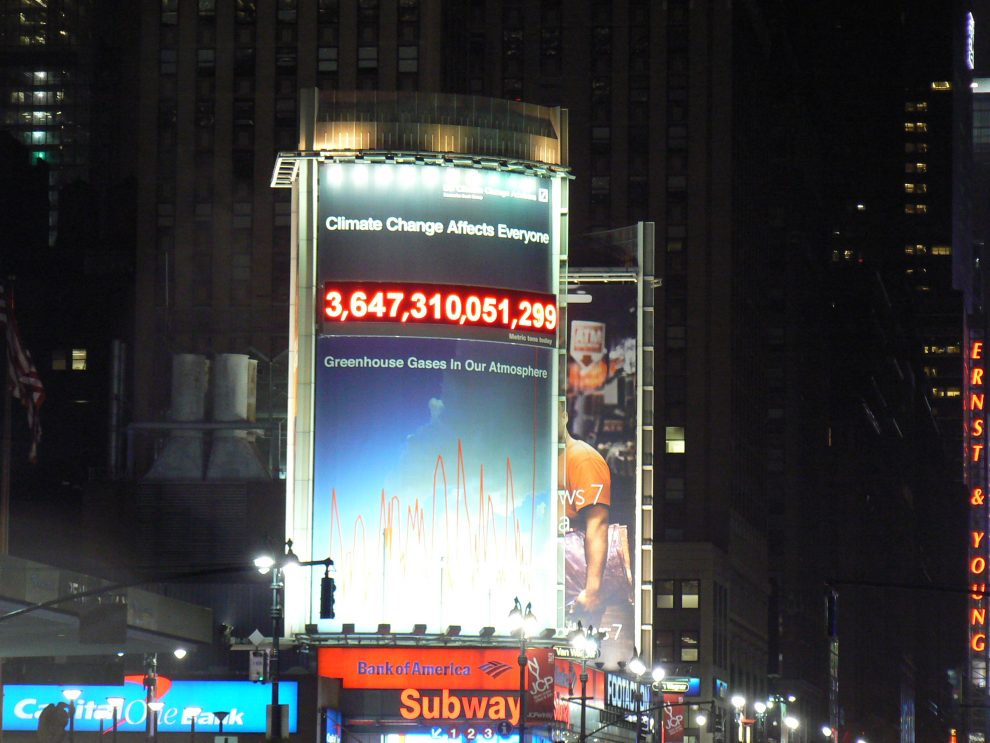This past Wednesday the shareholders of the ExxonMobil, the world’s largest, multinational oil and gas corporation headquartered in Irving, Texas, had the opportunity to take a step in the right direction. During their annual shareholder meeting, a measure to set goals to reduce production of greenhouse gases was voted down 3-to-1. The measure was proposed by the Sisters of St. Dominic of Caldwell who have been trying to get ExxonMobil to reduce its carbon emissions for years. (For more about how women religious as fighting to protect consumers and the environment, read "Sister Pat battles the board.")
Rex Tillerson, the chairman and CEO of ExxonMobil spoke up during the meeting against setting the goal of carbon emissions in the atmosphere to 350 parts per million. His reasoning? “We do not see a viable pathway with any known technology today to achieve the 350 outcome that is not devastating to economies, societies and peoples’ health and well-being around the world,” he said. “What good is it to save the planet if humanity suffers?”
Really? Don’t get me wrong, humanity suffering in the here and now is a severe problem that needs to be attended to. Tillerson, however, is focusing on economics—which made ExxonMobil its nearly $44.9 billion in profits in 2012—and does not focus on the effects on climate change that the company is increasing. The “good” that can come from saving the planet is having a habitable place for those of us around today and for future generations. By reducing the effects of climate change now, humanity can save itself a great deal of suffering that comes from rising sea levels, extreme weather patterns and conditions, food scarcity, an increase of endangered and extinct species, and so much more.
In my opinion, Tillerson is concerned solely on making current profits for ExxonMobil, but it would do him some good to focus more on bringing his company into the future with sustainable development tactics. He missed the entire point of the definition of “sustainable development” as defined by World Commission on Environment and Development’s (the Brundtland Commission) report “Our Common Future” in 1987. It states that sustainable development is "development that meets the needs of the present without compromising the ability of future generations to meet their own needs." A balance of social, environmental, and economic growth today will help make sure that the planet is around for generations to come.
The company has been criticized by many environmental advocacy groups for years, due in part to the large number of oil spills (including the Valdez oil spill) that have polluted waterways and landmasses. Even though they give a couple of million dollars every year to environmental advocacy groups ExxonMobil could gain even more positive publicity by setting goals for reductions of carbon emissions.
If we cannot rely on the influential power of a huge corporation—with a profit that can probably afford to help with environmental stewardship—to be a world leader in changing our actions for the better, who can we trust to carry the torch and lead us into a brighter future?
Image: Flickr photo cc by Ryan Somma








